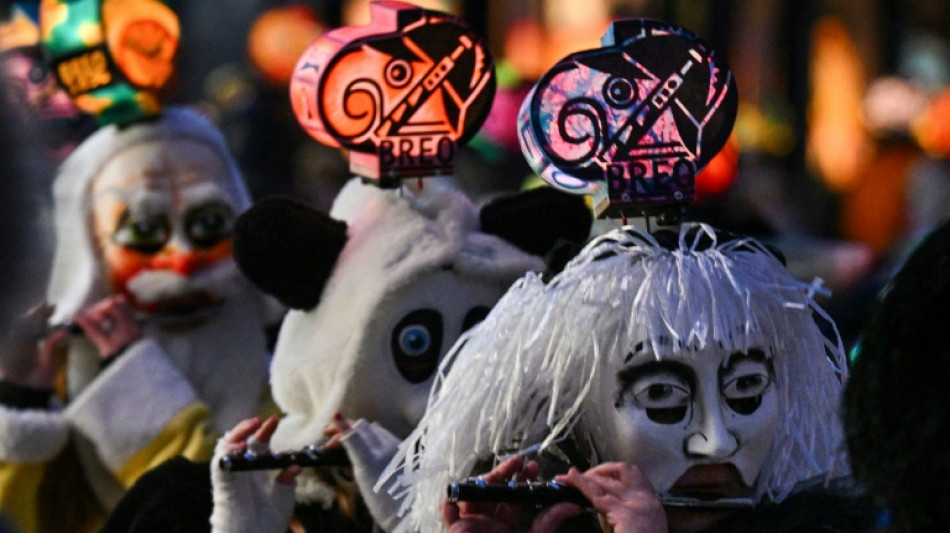Lanterns light the way as Basel carnival comes back
Revellers in fancy costumes lit up the freezing streets of Basel in the early hours of Monday as Switzerland's biggest carnival returned for the first time since 2019.
The three-day event, which is one of the best-known carnivals in Europe, was cancelled in 2020 and 2021 due to the Covid-19 pandemic.
But tens of thousands of people were out in the streets of Switzerland's third-biggest city before dawn to see the "Morgenstreich" lantern-lit procession get things back with a bang.
At 4:00am the city lights were turned off and the drum majors yelled "Morgestraich, vorwarts marsch!", giving the forward march order to set off, in the local Basel dialect of German.
The streets were transformed into a river of painted lanterns, colourful masks and creative costumes flowing through the northern city to the sound of pipes and drums.
The world's biggest Protestant carnival, which features on UNESCO's intangible cultural heritage list, starts at 4:00am on the first Monday after Ash Wednesday, and lasts for 72 hours.
The annual event is dubbed "the three most beautiful days" in the city, which borders Germany and France and straddles the River Rhine.
The reasons why the carnival takes place a week later in Basel than in other cities in Switzerland and Germany have been lost over the centuries.
It is not known how far the Basel carnival dates back. A devastating earthquake in 1356 destroyed the city's archives, and the earliest document referring to the carnival dates from 1376.
There were fewer large lanterns this year than would normally be seen, as the green light for the 2022 carnival came late, meaning that not all the parading groups had time to get ready.
Some presented the lanterns they had prepared for the cancelled 2020 edition.
Though Switzerland has lifted almost all of its Covid-19 restrictions, the virus has not gone away.
The carnival's traditional big parades on Monday afternoon and Wednesday afternoon have nonetheless been cancelled this year.
2020 marked the first time in around a century that the carnival had been called off -- the last time was due to the Spanish flu pandemic.
R.Altobelli--BD
